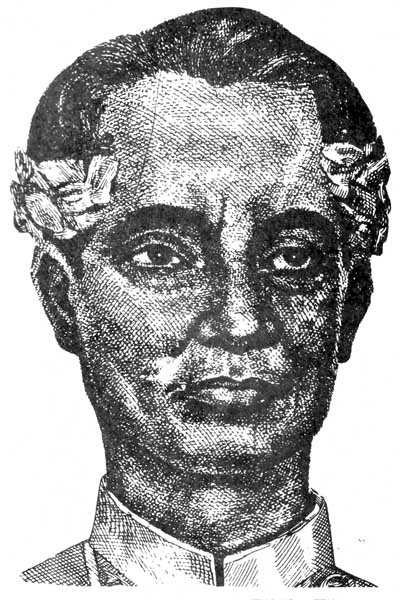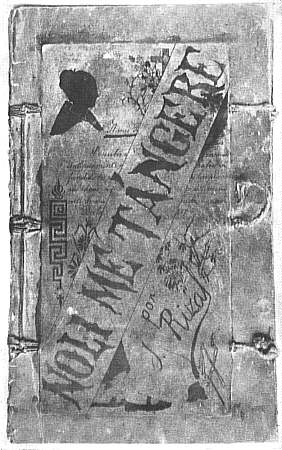|
Balagtasan
''Balagtasan'' is a Filipino form of debate done in verse. Derived from the name of Francisco Balagtas also known as the Prince of Balagtasan, this art presents a type of literature in which thoughts or reasoning are expressed through speech. The first balagtasan took place in the Philippines on April 6, 1924, created by groups of writers to commemorate the birth of Francisco Balagtas. They made the first balagtasan with three sets of poets presenting a scripted defense. They based the form on earlier types of debates that also used poetic elements such as ''karagatan'', ''huwego de prenda'' and, ''duplo''. Balagtasan is participated by two or more protagonists who engages in a debate on a selected subject. Each protagonist expresses their views in verse and with rhyming. Refutations shall also be done in the same manner. A judge, known as the ''lakandiwa'' if male or ''lakambini'' if female, will decide the winner of the balagtasan. The judge shall also announce the winner in ... [...More Info...] [...Related Items...] OR: [Wikipedia] [Google] [Baidu] |
First Balagtasan Between Jose Corazon De Jesus And Florentino Collantes (1924)
First most commonly refers to: * First, the ordinal form of the number 1 First or 1st may also refer to: Acronyms * Faint Images of the Radio Sky at Twenty-Centimeters, an astronomical survey carried out by the Very Large Array * Far Infrared and Sub-millimetre Telescope, of the Herschel Space Observatory * For Inspiration and Recognition of Science and Technology, an international youth organization * Forum of Incident Response and Security Teams, a global forum Arts and entertainment Albums * ''1st'' (album), by Streets, 1983 * ''1ST'' (SixTones album), 2021 * ''First'' (David Gates album), 1973 * ''First'', by Denise Ho, 2001 * ''First'' (O'Bryan album), 2007 * ''First'' (Raymond Lam album), 2011 Extended plays * ''1st'', by The Rasmus, 1995 * ''First'' (Baroness EP), 2004 * ''First'' (Ferlyn G EP), 2015 Songs * "First" (Lindsay Lohan song), 2005 * "First" (Cold War Kids song), 2014 * "First", by Lauren Daigle from the album '' How Can It Be'', 2015 * "First", by ... [...More Info...] [...Related Items...] OR: [Wikipedia] [Google] [Baidu] |
Debate
Debate is a process that involves formal discourse, discussion, and oral addresses on a particular topic or collection of topics, often with a moderator and an audience. In a debate, arguments are put forward for opposing viewpoints. Historically, debates have occurred in public meetings, academic institutions, debate halls, coffeehouses, competitions, and legislative assemblies. Debates have also been conducted for educational and recreational purposes, usually associated with educational establishments and debating societies. These debates emphasize logical consistency, factual accuracy, and emotional appeal to an audience. Modern competitive debate also includes rules for participants to discuss and decide upon the framework of the debate (how it will be judged). The term "debate" may also apply to a more continuous, inclusive, and less formalized process through which issues are explored and resolved across a range of agencies and among the general public. For example, ... [...More Info...] [...Related Items...] OR: [Wikipedia] [Google] [Baidu] |
In Verse
Poetry (from the Greek word ''poiesis'', "making") is a form of literary art that uses aesthetic and often rhythmic qualities of language to evoke meanings in addition to, or in place of, literal or surface-level meanings. Any particular instance of poetry is called a poem and is written by a poet. Poets use a variety of techniques called poetic devices, such as assonance, alliteration, euphony and cacophony, onomatopoeia, rhythm (via metre), and sound symbolism, to produce musical or other artistic effects. They also frequently organize these effects into poetic structures, which may be strict or loose, conventional or invented by the poet. Poetic structures vary dramatically by language and cultural convention, but they often use rhythmic metre (patterns of syllable stress or syllable (mora) weight). They may also use repeating patterns of phonemes, phoneme groups, tones (phonemic pitch shifts found in tonal languages), words, or entire phrases. These include conso ... [...More Info...] [...Related Items...] OR: [Wikipedia] [Google] [Baidu] |
Francisco Balagtas
Francisco Balagtas y de la Cruz (April 2, 1788 – February 20, 1862), commonly known as Francisco Balagtas and also as Francisco Baltazar, was a Filipino poet and litterateur of the Tagalog language during the Spanish rule of the Philippines. He is widely considered one of the greatest Filipino literary laureates for his impact on Filipino literature. The famous epic ''Florante at Laura'' is regarded as his defining Creative work, work. Balagtas adopted the legal surname Baltazar in fulfillment of the edict issued by Governor-General Narciso Claveria y Zaldua in 1849 that mandated the native population to adopt standard surnames. The name is commonly misspelled as Baltazar and sometimes misinterpreted as his pen name. Early life Francisco Balagtas was born in Barrio Panginay, Bigaa, Bulacan, as the youngest of the four children of Juan Balagtas, a blacksmith, and Juana de la Cruz. He studied in a parochial school in Bigaa and later in Manila. He later worked as a houseboy i ... [...More Info...] [...Related Items...] OR: [Wikipedia] [Google] [Baidu] |
Rhyming
A rhyme is a repetition of similar sounds (usually the exact same phonemes) in the final stressed syllables and any following syllables of two or more words. Most often, this kind of rhyming (''perfect rhyming'') is consciously used for a musical or aesthetic effect in the final position of lines within poems or songs. More broadly, a rhyme may also variously refer to other types of similar sounds near the ends of two or more words. Furthermore, the word ''rhyme'' has come to be sometimes used as a shorthand term for any brief poem, such as a nursery rhyme or Balliol rhyme. Etymology The word derives from or , which might be derived from , a Germanic term meaning "series", or "sequence" attested in Old English (Old English: meaning "enumeration", series", or "numeral") and , ultimately cognate to , ( "number"). Alternatively, the Old French words may derive from , from (, rhythm). The spelling ''rhyme'' (from the original rime) was introduced at the beginning of the Mod ... [...More Info...] [...Related Items...] OR: [Wikipedia] [Google] [Baidu] |
Entertainment
Entertainment is a form of activity that holds the attention and Interest (emotion), interest of an audience or gives pleasure and delight. It can be an idea or a task, but it is more likely to be one of the activities or events that have developed over thousands of years specifically for the purpose of keeping an audience's attention. Although people's attention is held by different things because individuals have different preferences, most forms of entertainment are recognisable and familiar. Storytelling, music, drama, dance, and different kinds of performance exist in all cultures, were supported in Court (royal), royal courts, and developed into sophisticated forms over time, becoming available to all citizens. The process has been accelerated in modern times by an entertainment industry that records and sells entertainment products. Entertainment evolves and can be adapted to suit any scale, ranging from an individual who chooses private entertainment from a now enormous ... [...More Info...] [...Related Items...] OR: [Wikipedia] [Google] [Baidu] |
Philippine Poetry
Philippine literature is literature associated with the Philippines from prehistory, through its colonial legacies, and on to the present. Characteristics According to journalist Nena Jimenez, the most common and consistent element of Philippine literature is its short and quick yet highly interpersonal sentences, with themes of family, dogmatic love, and persistence. September 5, 2020 The use of commas, conjunctions, and a variation of English known as Filipino-English or Taglish are also most present in Philippine literature. Many of these elements used by Filipino writers had an impact in the history of literature as a whole. History Precolonial period According to Filipino historian Teodoro Agoncillo, the ethnicity that had the richest history in terms of story-telling were the Ilocano people, whose nomadic lifestyle in the highlands bred stories of adventures far moreso than other Filipinos living in the lowlands. Ilocano used an improvised, versified, and at times im ... [...More Info...] [...Related Items...] OR: [Wikipedia] [Google] [Baidu] |




